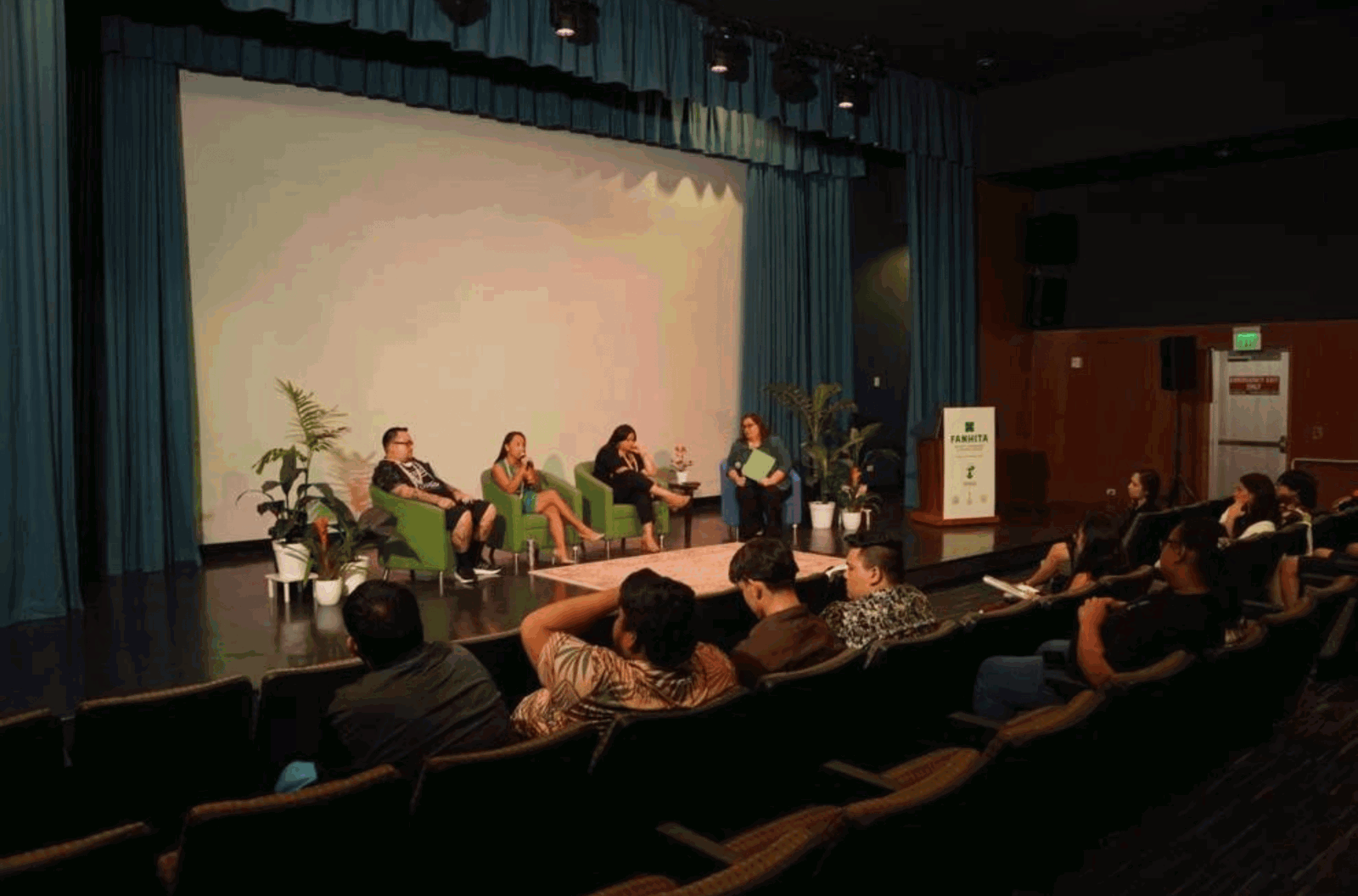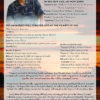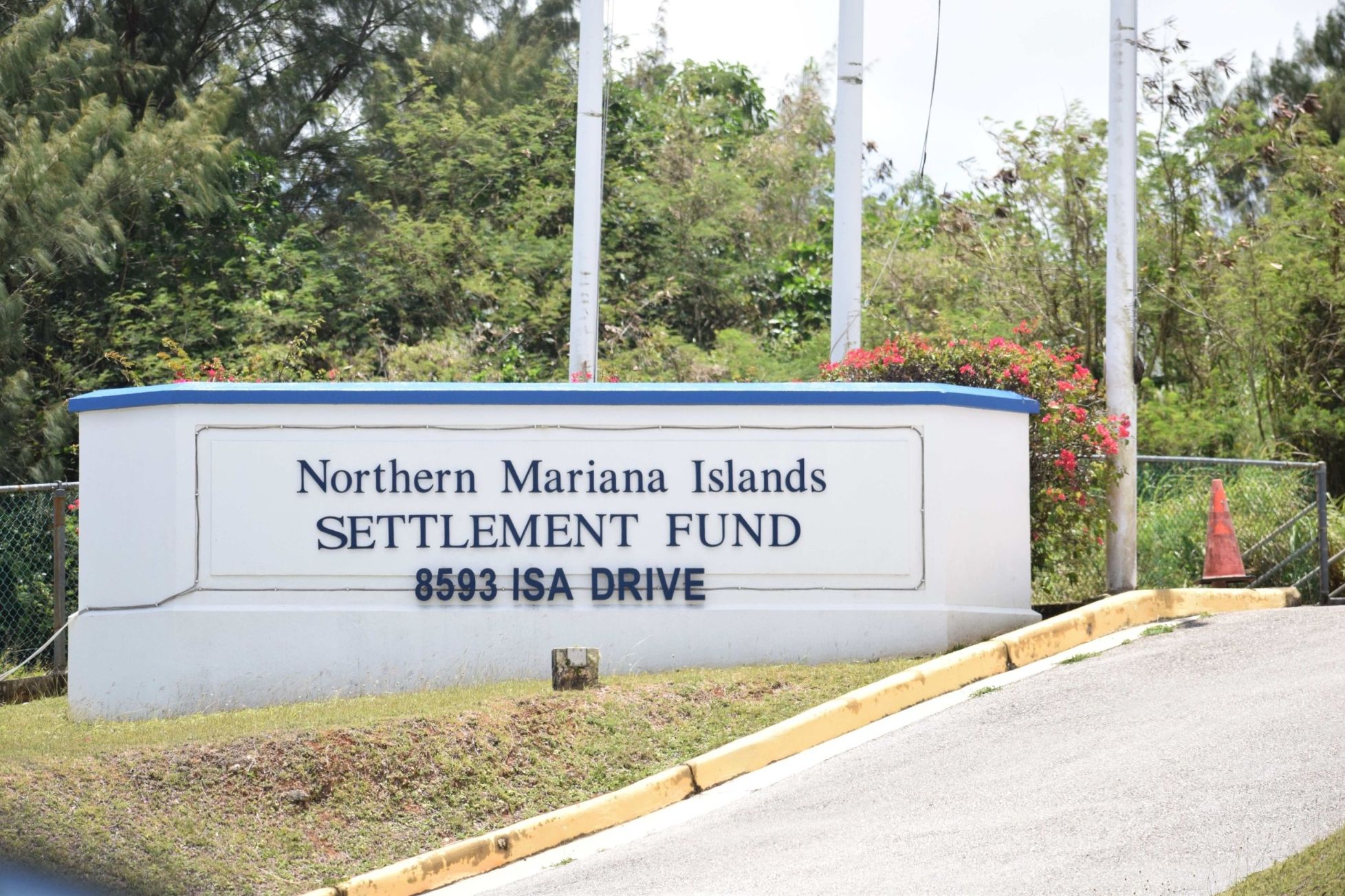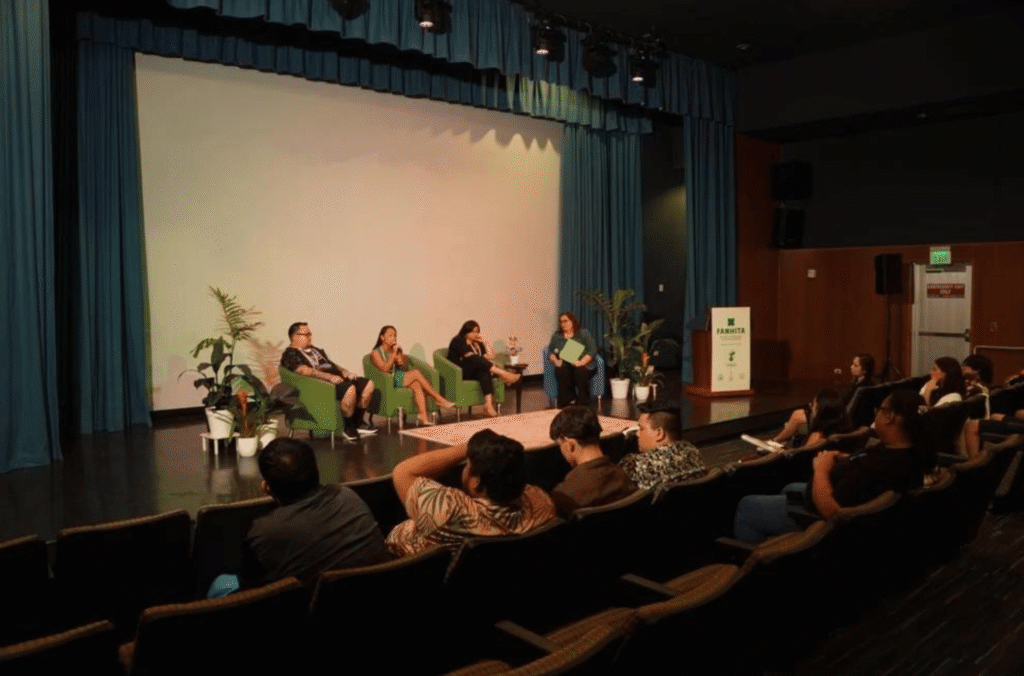HAGÅTÑA (The Guam Daily Post) — The first day of the Fanhita: Security, Sovereignty and the Path to Peace conference catered to island youth in hopes of helping them create a network to build a community around the issue of the island’s political status, according to event organizers.
“This issue impacts them more than anyone else. It impacts all of us in our everyday lives. There’s so many ways that our political disempowerment through our political status has really limited our growth and our ability to move into the future. Ultimately, political status resolution and changing our political status to a permanent one is a long process that requires all of us to be engaged. Young people should be involved because it ultimately is going to be the status that they will live in and operate,” Commission on Decolonization Executive Director Melvin Won Pat-Borja told The Guam Daily Post.
The lengthy process means that the youth of today will be the adults ushering in an era of change for Guam.
“So it’s important for these kids that are 13, 14 (and) 15 years old – who are not of voting age – they should be involved. They should be aware of the way that the political status will impact them. So we made a very deliberate effort to engage young people,” Won Pat-Borja said.
He said the conference on Monday sought to engage the island’s youth in the conversation and mobilize them, with the mobilization tracks meant to build a youth network.
“A lot of time you go to a conference, and it’s super cool and inspiring and the next day it’s over. You have to wait until next year. So that’s one of the things we are doing with this group. We are really trying to keep this group connected as a network and allow them an opportunity to build a community around their shared interests in this issue,” he said.
Among the breakout mobilization session topics was one that focused on mobilizing through media and film, which was hosted by Pauly Suba.
As part of the breakout session, he used an issue that appeared in local media involving school uniforms and discrimination to demonstrate how mobilization through media and film has helped.
“The (John F. Kennedy High School), the girls were saying that they were being discriminated over the school uniform, and so they put out a petition and reached out to (the Pacific Daily News) and the Post and told their story. And it was very effective for them because it looked like the girls were getting suspended and then they ended up not. And so after talking with some of the students, they said it was because they put their story out there … to mobilize using media and getting the word out,” Suba said.
While he is a host this year, Suba said covering last year’s conference Fanhita Manhoben as a reporter helped him prepare to engage with students on the subject.
“I was surprised to see (that) I didn’t realize how much they do know. I have to say, it’s impressive to see how much of our youth are advocating for this cause,” he said.
Suba also shared how youth could produce media and film that is impactful.
“The structure is of telling a story – the who, what, when, where and why – we are going to break that down and then allow them too. The hope is that they will be one of the speakers next year, showing what they produced between now and next year,” Suba said.

The Commission on Decolonization hosts the three-day Fanhita: Security, Sovereignty and the Path to Peace conference at the Guam Museum on Monday, Oct. 30, 2023, in Hagåtña.











